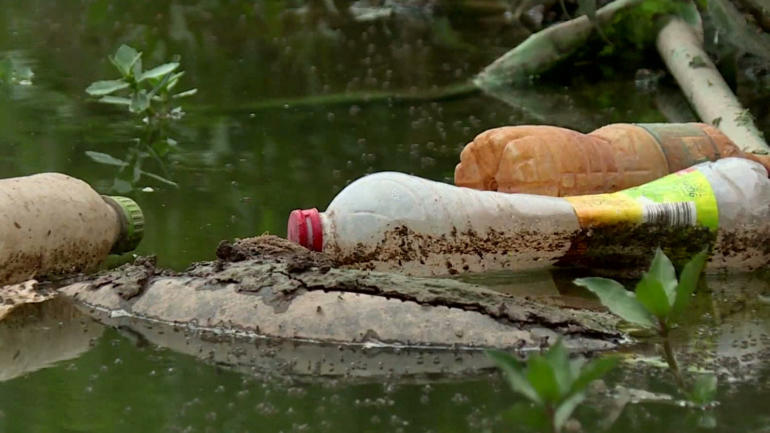The water we drink contains tiny pieces of plastic, according to a new study by the United Nations.
And while most of it is too large to be absorbed by the body, experts are calling for more research on the particles that are.
CGTN’s Owen Fairclough reports.
When a dead sperm whale was washed up in Indonesia last year, it had 6kg of plastic in its stomach.
And we humans are also ingesting it in microscopic particles like polyethylene terephthalate, or PET, according to a new study by the World Health Organization.
“In drinking water we see PET and we see polypropylene, but within those plastics even within, there are additives,” said Bruce Gordon of the World Health Organization’s Department of Public Health.
“So, whether they’re stabilizers or flame retardants and it’s, I think, some of those chemicals that people are most concerned about and those are many of those are well characterized.”
The plastic used in bottled water – a multi-billion-dollar industry enjoying huge growth – is also a contributory factor.
And if you think water from a fountain or tap is a better – and cheaper alternative – well, these tiny particles called microplastics are in that, too.
They find their way in from surface run-off and recycled wastewater.
The WHO wants more action against plastic pollution.
One study found plastic pollution in the Pacific Ocean alone covered a surface area three times the size of France.
Experts said while most plastic particles are too large to be absorbed into the body, they want more research on the chemical composition of those that can be.
“These particles are present in all waters, rivers, lakes, streams, wastewater and even in our drinking water,” Mr. Gordon said.
“So, we are ingesting them. But just because we’re ingesting them doesn’t mean we have a risk to human health.”
The WHO says the biggest current threat to human health is water contaminated with diarrheal diseases, blamed for nearly half a million deaths every year.
 CGTN America
CGTN America

